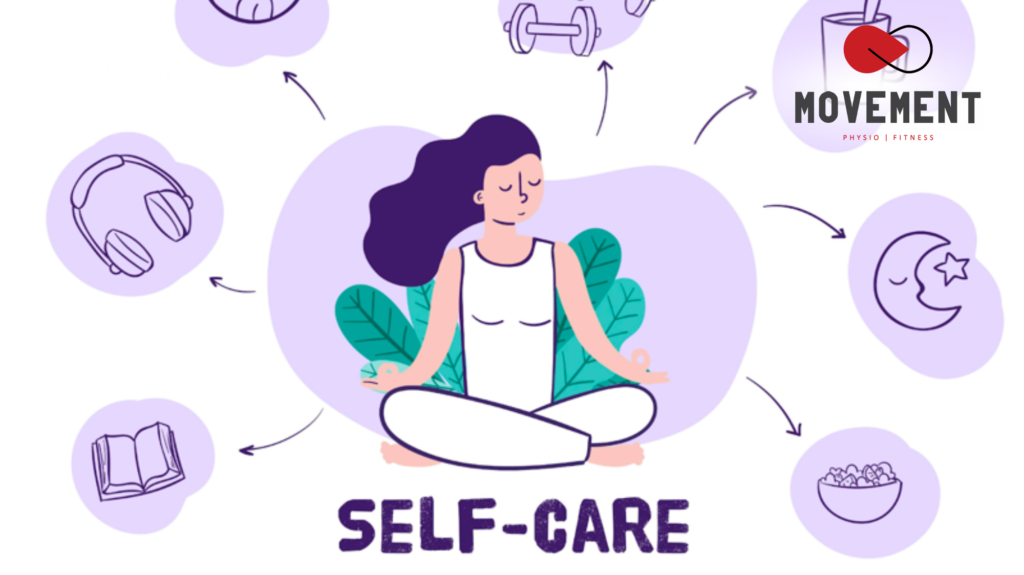Improving the quality of life is a journey many of us embark on to achieve a sense of happiness, well-being, and fulfilment. This comprehensive guide offers a detailed and engaging roadmap to enhance your lifestyle without overwhelming you with drastic changes. Let’s explore these transformative steps, integrating examples to inspire and guide your path to a better quality of life.
1. Foster healthy relationships
Our relationships significantly impact our mental and emotional health. Engaging in positive communication, showing appreciation, and sharing responsibilities can strengthen bonds. For instance, a couple deciding to allocate time for weekly date nights or a family choosing to share household chores can create a supportive and loving environment. Disconnecting from toxic relationships and nurturing positive ones is crucial; consider joining community groups or clubs to meet new, like-minded individuals.
Imagine you and a close friend have drifted apart due to the busy nature of life. You decide to reconnect by planning a weekend retreat together, choosing a place halfway between your homes. This retreat isn’t just about relaxation but also includes activities like hiking, cooking together, and nighttime conversations by a fire. Through these shared experiences, you rebuild your connection, discussing life’s ups and downs, dreams, and future plans, thereby reigniting the strength of your friendship.

2. Prioritize restful sleep
A good night’s sleep is foundational to our well-being. It affects everything from our mood and productivity to our physical health. Creating a bedtime routine that may include reading, meditation, or a warm bath can signal your body it’s time to wind down. Keeping a consistent sleep schedule, even on weekends, helps regulate your body’s clock, leading to better sleep quality.
Sarah found herself struggling with insomnia, her mind racing with the day’s stresses as soon as her head hit the pillow. She decided to transform her approach to sleep by creating a serene bedtime ritual. Starting an hour before bed, she’d turn off all screens, take a warm bath with lavender oils, and drink a cup of chamomile tea. She replaced scrolling through her phone with reading a chapter of a novel by the lamplight. Within weeks, Sarah noticed a profound improvement in her sleep quality and, consequently, her daily energy levels.
3. Stay active and embrace exercise
Physical activity is a cornerstone of a healthy lifestyle, benefiting both body and mind. You don’t need to run marathons; simple activities like brisk walking, cycling, or yoga can significantly improve your quality of life.
Mark, a graphic designer, realised his sedentary lifestyle was impacting his health. He decided to make a change by cycling to work instead of driving. Initially daunting, the 5-mile ride became a cherished part of his day. He discovered new cafes and bookshops on his route, enjoyed the changing scenery through the seasons, and felt more energised. Mark’s story shows how integrating exercise into daily routines can transform it from a chore into a delightful habit.
4. Eat a balanced diet
Nutrition plays a vital role in how we feel and function. Consulting a nutritionist to tailor a diet to your needs can be a game-changer. Incorporating nutrient-dense meals into your weekly routine, possibly through meal prep or delivery services, supports physical health and can improve energy levels. Remember, small changes like reducing added sugars and increasing your intake of fruits and vegetables can make a significant difference.
Emily wanted to improve her diet but felt overwhelmed by the conflicting nutrition advice online. She decided to focus on adding rather than subtracting by challenging herself to include at least three different coloured vegetables in every meal. This simple goal led her to explore farmers’ markets and experiment with recipes from around the world, turning meal prep into a creative and enjoyable activity. Her energy levels soared, and she discovered a passion for cooking that she never knew she had.
5. Practice mindfulness
Mindfulness and meditation can profoundly impact our mental health, promoting feelings of peace and contentment. Simple practices like daily gratitude journaling or mindful walking can help you stay present and reduce stress. Research shows that mindfulness meditation can even enhance areas of the brain responsible for memory and learning.
After experiencing burnout, Alex turned to mindfulness to regain balance. Starting with just five minutes a day, Alex practised seated meditation, focusing on the breath and observing thoughts without judgment. This practice expanded into mindful walks, where Alex would fully immerse in the environment, noting the sensation of the breeze, the sounds of birds, and the texture of the ground underfoot. Over time, this practice deepened, helping Alex develop a more grounded and peaceful approach to daily life.
6. Organize your time wisely
Efficient time management can alleviate stress and make room for activities that enrich your life. Techniques like time-blocking can help you focus on tasks without feeling overwhelmed. Keeping a digital or physical planner ensures you stay on top of your responsibilities while also carving out time for rest and leisure.
Lisa, a busy mom and entrepreneur, struggled with managing her time. She started using the Pomodoro Technique, breaking her work into focused intervals of 25 minutes followed by 5-minute breaks. This not only boosted her productivity but also allowed her to allocate time for her children’s activities and her hobbies. She created a visual time tracker that helped her stay on course and visibly see where her time was going, leading to a more balanced and fulfilling routine.
7. Engage in meaningful work
Finding purpose in your work can boost your overall satisfaction with life. If your job feels lackluster, seek out tasks that feel more meaningful, or consider volunteering your skills to a cause you’re passionate about. Sometimes, simply changing your perspective on your work can rekindle your passion and sense of purpose.
Tom felt stuck in his corporate job, yearning for work with more meaning. He began volunteering at a local non-profit on weekends, applying his professional skills to help the organisation’s marketing efforts. The joy and fulfilment he found in this work led him to transition to the non-profit sector full-time, where he felt his daily efforts contributed to a greater good. This shift brought a renewed sense of purpose and satisfaction to Tom’s career.
8. Address energy drains
Identify what saps your energy, whether it’s clutter, unresolved tasks, or negative people, and take steps to minimise these drains. Completing one small task each day or decluttering your workspace can liberate your mental space, leaving you more energy for activities that bring joy.
Jenna noticed her energy dipping mid-afternoon, often leading her to cancel evening plans. She identified her habit of skipping breakfast and relying on coffee for energy as a major drain. By starting her day with a nutritious breakfast and replacing her afternoon coffee with a short walk, Jenna found her energy levels more stable throughout the day, allowing her to enjoy her evenings without exhaustion.
9. Make time for leisure
Incorporating leisure activities into your life is essential for balance and well-being. Whether it’s pursuing a hobby, enjoying nature, or simply taking time to relax, leisure activities can rejuvenate your spirit and enhance creativity. For instance, joining a hobby group or planning regular outings with friends can enrich your social life and provide much-needed downtime.
Carlos realised he had fallen into a routine of work, eat, sleep, repeat. He decided to shake things up by signing up for a salsa dancing class, something he had always wanted to try but never had the courage to do. The class became the highlight of his week, providing not just fun and exercise but also a new community of friends. This new hobby rekindled Carlos’s zest for life, showing him the importance of making time for joy and leisure.

10. Consider mindful consumption
Mindful consumption, including the use of alcohol and other substances, can significantly impact your quality of life. If you find that alcohol affects your mood or well-being, taking a break or seeking professional advice might be beneficial. This step also extends to digital consumption; moderating screen time, especially before bed, can improve sleep quality and mental health.
David had always considered himself a social drinker, but over time, he noticed his casual drinks were becoming more frequent and were negatively affecting his mood and productivity. After a particularly challenging week where he struggled with concentration at work and felt unusually irritable, he decided it was time for a change. David chose to embark on a month of no alcohol, replacing his evening drinks with other activities like joining a local sports league and attending workshops on topics he was passionate about. This shift not only improved his physical well-being but also his mental clarity and emotional stability. He found himself more present in his interactions and discovered a newfound appreciation for engaging with his hobbies and interests fully. Additionally, David began to practice digital detoxes on weekends, turning off his phone and computer to spend quality time outdoors or with friends and family. This helped him break the cycle of mindless scrolling and significantly improved his sleep quality, leaving him feeling more rested and rejuvenated for the week ahead.
11. Build a self-care routine
Self-care is not selfish; it’s necessary for maintaining mental, emotional, and physical health. Tailor your self-care routine to include activities that recharge your batteries. Whether it’s exercise, meditation, or spending time with loved ones, ensure your routine nourishes all aspects of your well-being.
Mia, a high school teacher, found herself constantly exhausted and overwhelmed, juggling the demands of her job, family responsibilities, and her own personal goals. Realising she had been putting her own needs on the back burner, Mia decided to prioritise self-care. She started by identifying activities that made her feel good, both physically and mentally. Every morning, she dedicated 15 minutes to meditation and journaling, setting a positive tone for her day. She also incorporated a 30-minute walk after dinner, using this time to decompress and reflect on her day. Mia made it a point to schedule these activities in her planner as non-negotiable appointments, just like her work meetings and family commitments. Additionally, she established a weekly “me-time” ritual, where she would indulge in a long bath, read a book, or practice yoga—whatever felt most nurturing that week. By committing to these practices, Mia noticed a significant improvement in her overall well-being. She felt more balanced, energised, and equipped to handle life’s stresses. Most importantly, she learned that by taking care of herself, she was better able to care for others and pursue her passions with renewed vigour.
All the examples given illustrate how small, intentional changes in our daily habits and attitudes can significantly impact our overall quality of life. By taking inspiration from these scenarios, you can begin to craft your own path toward a more fulfilling, balanced, and joyful existence.

Conclusion
Embarking on a quest to improve your quality of life is a noble and fulfilling endeavor, one that requires mindfulness, dedication, and a willingness to explore new habits and routines. By fostering healthy relationships, prioritising restful sleep, staying active, eating well, and engaging in meaningful activities, you lay the foundation for a life brimming with happiness, well-being, and fulfilment.
Remember, this journey is uniquely yours; it’s about finding balance and joy in the everyday moments and making small, consistent changes that lead to lasting improvements. Let the examples provided inspire you to carve out a path that resonates with your aspirations and lifestyle. As you implement these strategies, embrace the process with kindness and patience toward yourself, celebrating each step forward. Here’s to your journey toward a richer, more vibrant life—may it be filled with discovery, growth, and an abundance of joy.

Add your first comment to this post